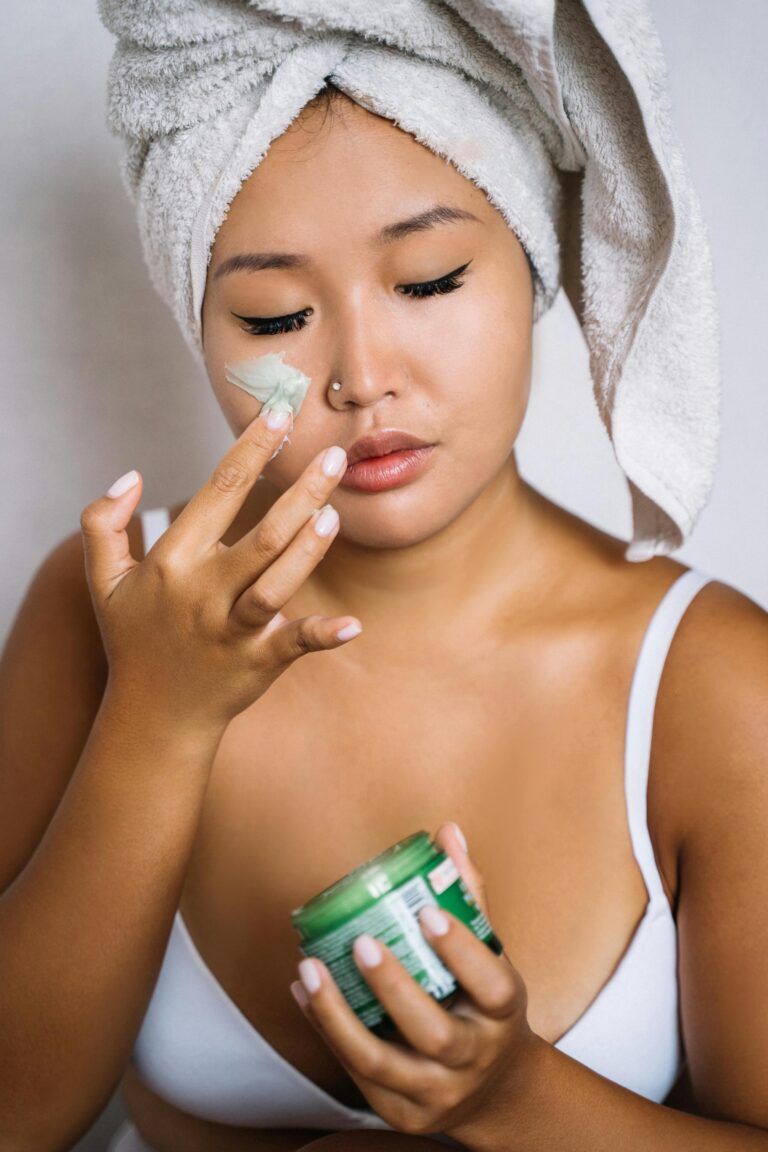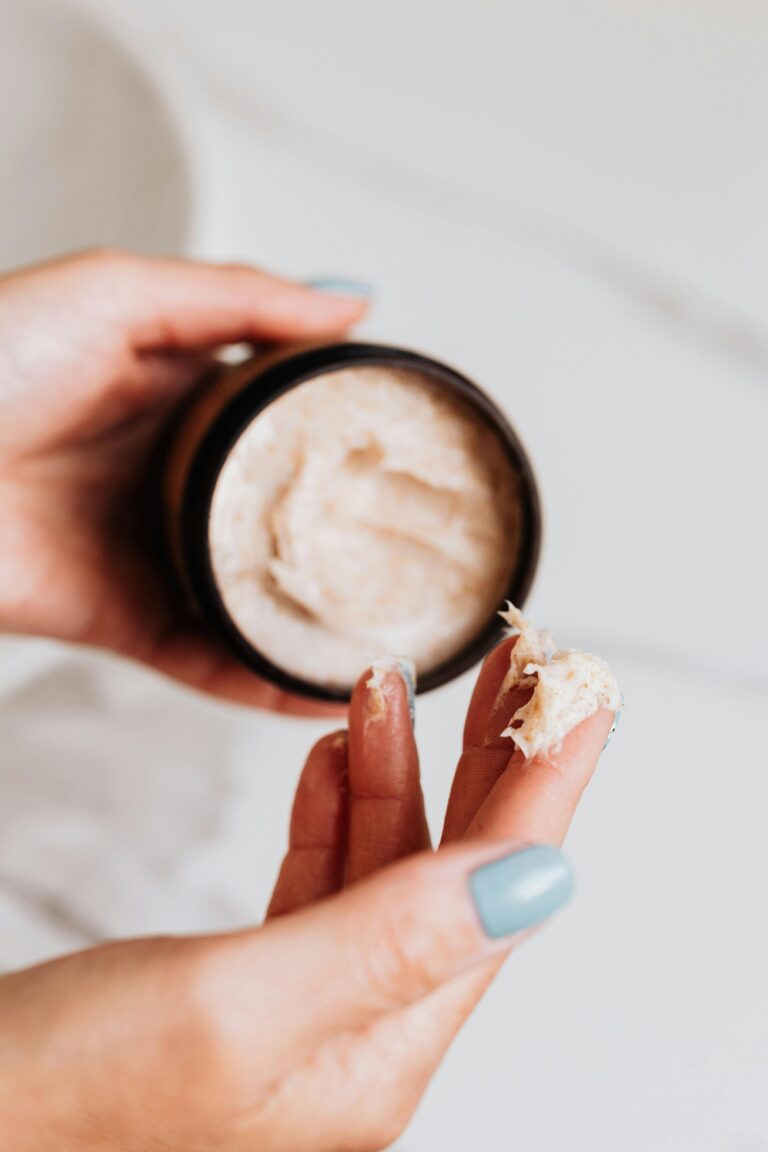How To Treat Dry Skin: Best Tips For Hydrated, Healthy Skin
Does your skin ever feel like it’s one size too small, tight and flaky no matter how much moisturizer you slather on? You’re not alone. Dry skin can be downright frustrating, especially when it leaves your complexion looking dull or feeling uncomfortable. Whether it’s the cold weather, a change in your routine, or just one of those days, dealing with dry skin can feel like an endless battle.
Understanding Dry Skin
Dealing with dry skin can be frustrating, especially when no matter what you try, it still feels tight or looks dull. To care for your skin, it helps to know what’s causing the dryness and what signs to watch for.
Causes Of Dry Skin
Dry skin happens for many reasons, and it’s not always about the products you use. Here are some of the most common culprits:
- Weather: Cold, dry air during winter or hot, dry climates can suck the moisture out of your skin. Using heaters can make it worse.
- Over-Washing: Washing your face or body too often, especially with hot water or harsh soaps, can strip your skin of natural oils.
- Age: As you get older, your skin produces less oil, which can lead to more dryness.
- Skin Conditions: Issues like eczema or psoriasis can leave your skin feeling extra dry and irritated.
- Products: Some skincare items, especially ones with alcohol or fragrance, can dry out your skin instead of helping it.
Symptoms Of Dry Skin
It’s helpful to recognize when your skin’s feeling dehydrated. You might notice:
- Tightness: Your skin might feel uncomfortable, especially after washing.
- Flaking or Peeling: Small, dry flakes or even peeling can appear on the surface.
- Itchiness: Dry patches can get itchy, making your skin feel irritated.
- Dullness: Dry skin often looks less glowy and vibrant, no matter what you apply.
- Cracks or Redness: Severe dryness might cause tiny cracks or redness in certain areas, like around your mouth or hands.
Understanding what’s going on with your skin is the first step to getting it back to feeling soft and hydrated.
Best Practices For Everyday Care
Dry skin can feel frustrating, but a few small changes to your daily habits can help keep your skin soft, hydrated, and comfortable.
Choosing The Right Skincare Products
Products matter when taking care of dry skin. Look for cleansers labeled as “gentle” or “hydrating.” Avoid anything with harsh sulfates or alcohol, as they strip your skin’s natural moisture. Ingredients like glycerin, hyaluronic acid, ceramides, and shea butter are all fantastic for locking in hydration.
When picking a moisturizer, creams and ointments are usually better than lotions for dry skin since they’re richer. Apply moisturizer right after washing your face or showering to seal in moisture.
If you’re dealing with really dry patches, a product with urea or lactic acid can exfoliate and hydrate at the same time. Always patch-test new products if your skin feels sensitive.
Hydration Tips For Healthier Skin
Moisturizing alone isn’t enough if your skin is dehydrated from the inside out. Start by making water your go-to drink. Sipping throughout the day—around eight cups—is a simple way to help your skin stay plump and happy.
Limit how often you’re exposing your skin to hot water as it can be drying. Keep showers lukewarm and under 10 minutes if possible. Afterward, pat your skin dry instead of rubbing, leaving it slightly damp before applying moisturizer.
Consider a humidifier in your bedroom, especially during colder months or if you live in a dry climate. This helps add moisture to the air, preventing your skin from drying out overnight.
The Role Of Diet In Skin Health
What you eat plays a big part in how your skin feels. Omega-3 fatty acids, found in foods like salmon, walnuts, and flaxseeds, help nourish your skin from within. Foods rich in antioxidants like berries, spinach, and green tea support healthy skin function, too.
Don’t forget healthy fats! Avocados, olive oil, and nuts are great options to boost your skin’s natural moisture barrier. And while treats are fine in moderation, try cutting back on sugary snacks or processed foods as they can trigger dryness or inflammation.
If you’re not getting enough hydration or nutrients through your diet, adding supplements like fish oil, evening primrose oil, or zinc (after checking with a doctor) may make a difference.
Effective Treatments For Dry Skin
If dry skin has you feeling frustrated, there’s good news—it’s totally manageable with the right care. From choosing the best products to trying natural remedies and seeking professional options, you’ve got plenty of ways to keep your skin soft and hydrated.
Moisturizers And Creams
Moisturizers are your skin’s best friend when it comes to locking in hydration. For dry skin, thicker creams or ointments work better than lighter lotions. Look for key ingredients like:
- Hyaluronic Acid: Boosts hydration by drawing water into the skin.
- Ceramides: Help repair and strengthen your skin’s barrier.
- Glycerin: Adds moisture and creates a protective layer.
Apply your moisturizer immediately after washing your face or stepping out of the shower to trap in moisture. Don’t forget areas like your elbows, knees, and hands, which often get overlooked but tend to feel the driest.
Natural Remedies And Oils
Sometimes simple ingredients from your pantry or natural oils can do wonders. These options are gentle and effective:
- Coconut Oil: Packed with fatty acids, it deeply nourishes and soothes flaky skin. Perfect for use after a shower.
- Aloe Vera Gel: Hydrating and calming, it’s great for redness or irritation. Look for pure aloe without added fragrances.
- Honey: Known for its humectant properties, honey locks in moisture while softening skin. You can use it as a 10-minute face mask.
When using oils, apply them sparingly and focus on areas that need extra hydration. Pairing oils with your regular moisturizer can give you that extra boost for stubborn dryness.
Over-The-Counter And Prescription Options
Sometimes drugstore options or a visit to your dermatologist can make all the difference. Look for over-the-counter products labeled “for extremely dry skin,” especially ones containing:
- Urea or Lactic Acid: Both gently exfoliate and soften thick, dry patches.
- Petrolatum: A powerful moisturizer that seals in hydration.
If dryness is severe or linked to conditions like eczema or psoriasis, talk to your dermatologist. Prescription topical creams, such as corticosteroids or barrier repair treatments, might be necessary to relieve discomfort and restore your skin’s health.
Preventing Dry Skin
Keeping your skin hydrated doesn’t have to be complicated. Small changes in your routine can make a big difference, no matter the season.
Daily Habits To Maintain Skin Moisture
- Switch to gentle cleansers: Harsh soaps strip away your skin’s natural oils. Go for creamy, hydrating cleansers with ingredients like ceramides or glycerin. These help clean your skin without drying it out.
- Moisturize immediately after washing: Lock in hydration by sealing damp skin with a thick cream or ointment. Look for formulas with hyaluronic acid, shea butter, or petroleum jelly.
- Skip super-hot water: Hot showers feel great, but they can dry out your skin fast. Stick to lukewarm water to keep your skin’s moisture barrier healthy.
- Protect your hands and lips: Your hands and lips can dry out quickly. Use hand cream throughout the day and swipe on lip balm with hydrating ingredients like beeswax or lanolin.
- Stay hydrated internally: Drinking enough water keeps your skin hydrated from within. Adding foods rich in healthy fats, like avocados or walnuts, supports overall moisture too.
Seasonal Care For Skin Protection
- Winter adjustments: Dry indoor heating and cold air can sap moisture from your skin. Use a humidifier to add moisture to the air, layer on heavier creams, and wear gloves outside to protect your hands.
- Summer strategies: The summer sun can also dry out your skin. Use mineral-based sunscreen with added moisturizers for dual benefits and reapply often. If you’ve been in chlorinated pools, rinse off quickly and moisturize immediately.
- Fall and spring shifts: Transitional weather can confuse your skin. Add lightweight layers of hydration, like serums under a moisturizer, to help your skin adapt.
Preventing dryness isn’t about expensive routines—it’s about consistent care and smart choices adapted to your needs.
Common Mistakes To Avoid
Skipping Moisturizer
Skipping moisturizer can make dry skin worse, even if your skin feels oily in some spots. Your skin gets dehydrated without proper hydration, which can lead to more dryness or even overproduction of oil. Use a hydrating cream or ointment daily to lock in moisture.
Over-Exfoliating
Exfoliating too often or using harsh scrubs can strip your skin’s natural oils, leaving it irritated and flaky. Exfoliate gently 1-2 times a week with products containing mild ingredients like lactic acid or enzymes. Avoid rough scrubs that can worsen dryness.
Using Harsh Cleansers
Harsh cleansers with sulfates or strong fragrances can disrupt your skin barrier. Switch to a gentle, hydrating cleanser that cleans without stripping. Look for words like “creamy” or “hydrating” on the label.
Taking Long, Hot Showers
Hot water feels relaxing, but it removes natural oils from your skin. Limit showers to 5-10 minutes and use lukewarm water instead. Immediately apply moisturizer afterward to seal in hydration.
Ignoring Ingredients
Using skincare products with alcohol, strong fragrances, or salicylic acid can make dryness worse. Check labels for hydrating ingredients like ceramides, glycerin, and hyaluronic acid. Avoid products that leave your skin feeling tight after use.
Forgetting Sun Protection
Dry skin can worsen under sun exposure, leading to damage and dehydration. Use a broad-spectrum SPF 30 or higher daily, even in winter. A sunscreen with moisturizing properties can help keep your skin hydrated.
Not Adjusting Your Routine Seasonally
Your skin’s needs change with the weather. Cold months often require richer moisturizers and humidifiers, while summer may need lighter hydrators and sunscreen reapplication. Pay attention to seasonal changes to keep dryness at bay.
Lack of Consistency
Inconsistent skincare can prevent you from seeing results. Stick to your routine daily, and don’t switch products too often. Consistency helps ingredients work effectively over time.
Conclusion
Dry skin doesn’t have to be a constant battle! With the right approach and a little extra care, you can transform your skin into a hydrated, glowing canvas. By staying consistent with gentle products, nourishing your skin from the inside out, and making smart daily choices, you’re setting yourself up for success.
Remember, your skin deserves love and attention just like the rest of you. Embrace these tips, listen to what your skin needs, and watch as it rewards you with comfort and radiance. Your journey to soft, healthy skin starts now—go for it!






